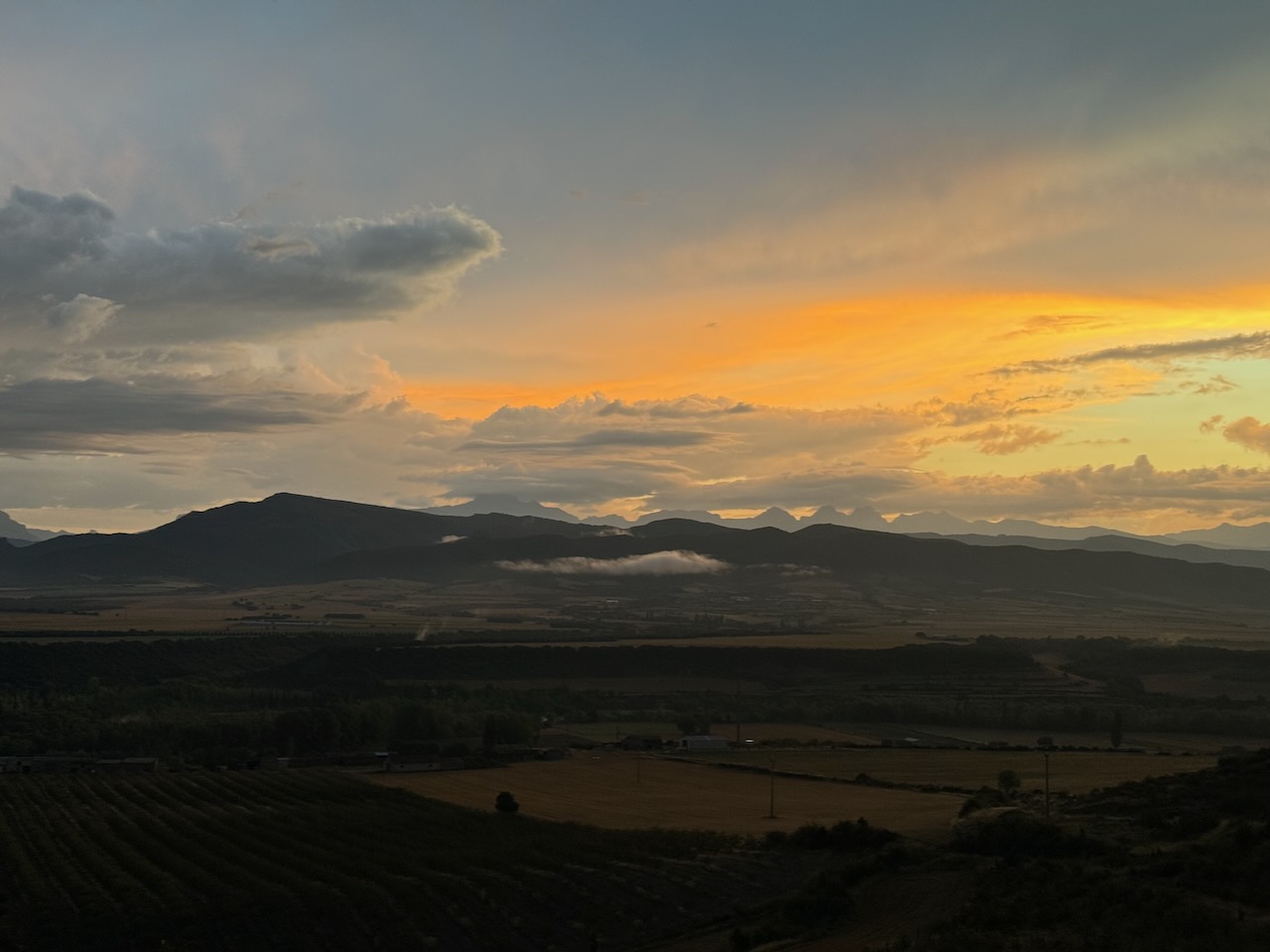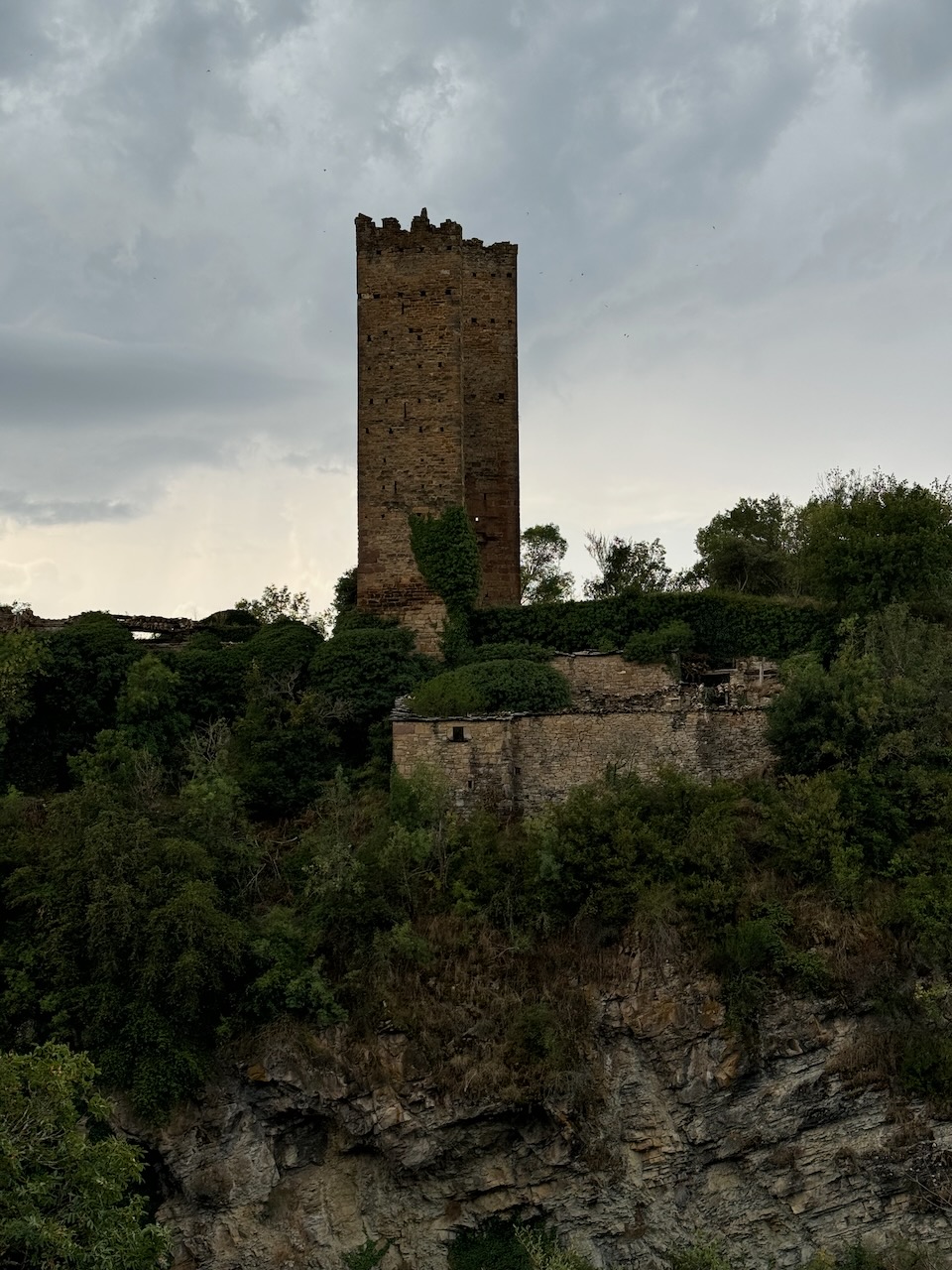Walked: 34Km

My fears about not being able to connect with others once my solitary walks were over were completely unfounded. I was surpirsed at the ease and the eagerness with which I engaged in conversation with other people. It was a natural curiosity and openness that I experience with close friends when I'm relaxed, or with strangers when I'm a little bit drunk.
The hospitaleros proposed that—since I am Mexican—that I prepare Mexican food with the help of other pilgrims, to which I agreed, not without a certain degree of uneasiness given that preparing a mediocre dinner on the camino was on my list of embarrassing memories, but it turned out OK (OK according to Mexican standards. People really liked it, you can tell not from what they say but from the eagerness with which they eat). It's almost cheating when you prepare Mexican food to foreigners in a foreign country, since there is they have no frame of reference to what it should taste like.
The hospitaleros were two guys of the same age. They had been friends since they were kids, but they were older folks now (probably mid sixties). One looked much older than the other one. The one that looked older had his scalp and part of his face with severe psoriasis. He was also the hospitalero with more experience, the other one played more of a supporting role and was there only for a couple of days (though I would say he had much better vocation for being a hospitalero).
the "older" hospitalero drunk a bit too much wine at dinner. He went into long monologues in Spanglish, criticizing (implicitly or explicitly) certain people or groups. He spoke about the hypocrisy of the anarchists that managed the next albergue by engaging in capitalist practices (where we are staying tonight, they're cool). He told a story about a German guy who—despite spending every summer walking in Spain—only knew two phrases in Spanish (the experienced German pilgrim who doesn't speak Spanish excused himself going to bed immediately after this story) . He engaged in stereotypes of people from different regions of Spain.
I could see everyone's eyes glazing over, and I was growing more and more impatient without knowing how to steer the conversation. Finally he spoke ill about pilgrims who start the camino less than 10 days walking from Santiago, in the words of this man "dressed in impeccable clothes and a sandwich on hand". At this point I was exasperated. I interrupted him saying: "What you are saying is that a hierarchy of pilgrims and we are on the top. I disagree."—"yes indeed, that's what I'm saying" he said. "We all have to start somewhere, to think yourself superior to someone because you walked more is senseless pride". I would have gone further, but fortunately someone very skillfully steered the conversation and the tension dissipated. Soon enough he announced it was late and that we should all go to bed.
The next morning I felt guilty because I had been too confrontational in my approach. I had breakfast and when I went to wash my dishes, I found the hospitaleros in the kitchen confiding in quiet voices about something completely unrelated, which I didn't understand, but it was discussed with passion and later they took their conversation outside the albergue because it was private. Then it clicked for me: the "older" hospitalero was under a lot of stress (hence his psoriasis flare). His best friend was there to help him go through a difficult period. He got drunk because he needed it. His bad mouthing of everyone was an outlet of frustration with whatever situation he is going through.
I know I can't be certain, but it's a reasonable interpretation of the situation. I then felt compassion for him and strangely enough my own guilt dissipated instead of growing, as I would have expected. I sometimes debate with myself if I should use non-violent communication. I believe people can be objectively wrong and should be called out for it. I'm still trying to figure these things out.
